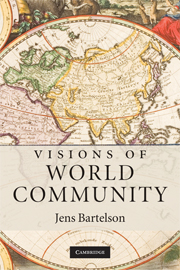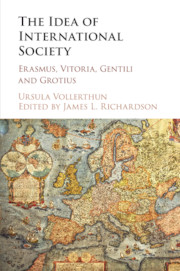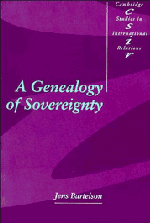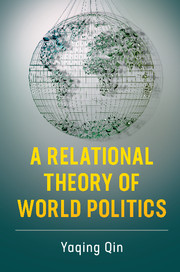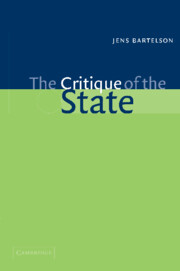Visions of World Community
Throughout the history of Western political thought, the creation of a world community has been seen as a way of overcoming discord between political communities without imposing sovereign authority from above. Jens Bartelson argues that a paradox lies at the centre of discussions of world community. The very same division of mankind into distinct peoples living in different places which makes the idea of a world community morally compelling has also been the main obstacle to its successful realization. His book offers a philosophical and historical analysis of the idea of world community by exploring the relationship between theories of world community and changing cosmological beliefs from the late Middle Ages to the present.
- A comprehensive analysis of the history of the idea of world community - a much neglected conceptual problem in international relations theory
- Provides a critical analysis of contemporary theories of world community, allowing readers to grasp salient problems in contemporary political theory from a fresh perspective
- Demonstrates a new way to view the outcomes of globalization
Reviews & endorsements
“This imaginative and erudite analysis of changing relationships between society, humanity and the cosmos provides fresh insights into the tensions between universalistic and particularistic visions of community - and a distinctive angle on how they might yet be resolved.”
Andrew Linklater, Woodrow Wilson Professor of International Politics, Aberystwyth University
“This remarkable book aims to change the way we think about the world by changing the way we remember our history of thinking about the world…. Visions of World Community is a brilliant book.”
Ayse Zarakol, Washington & Lee University, Journal of Politics
“Bartelson’s Visions of World Community points the way to a kind of communal pluralism, rather than to a form of moral cosmopolitanism. For some that may severely diminish its value. But for me it is one of the book’s greatest strengths, since it shows that our sense of attachment to a broader human community need not rest on controversial claims about the moral priority of cosmopolitan loyalties and obligations.”
Bernard Yack, Brandeis University, Political Theory
“Bartelson’s call to envision world community resonates and leads in promising new directions. Visions of World Community not only engages canonical texts but is well versed in the interpretive controversies that have developed around them. Not many writers have such a mastery of both the fields of political theory and IR theory. The work is courageous and often quite fresh and inspiring; it will challenge you to fundamentally reconsider issues you thought settled, and that to my mind is a sign of a good book.”
Mlada Bukovansky, Smith College, International Studies Review
Product details
November 2009Adobe eBook Reader
9780511636868
0 pages
0kg
This ISBN is for an eBook version which is distributed on our behalf by a third party.
Table of Contents
- 1. A conceptual history of world community
- 2. Paradoxes of world community
- 3. In the beginning was the world
- 4. Nationalizing community
- 5. Reinventing mankind
- 6. Globalizing community
- 7. Community unbound?

